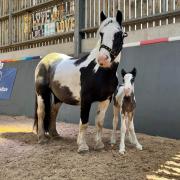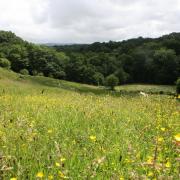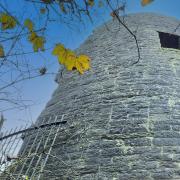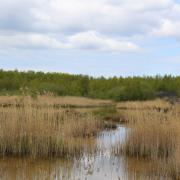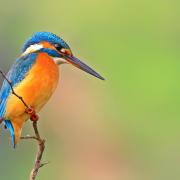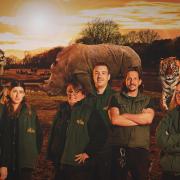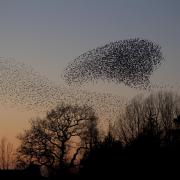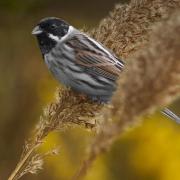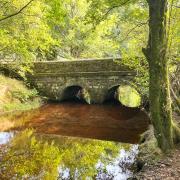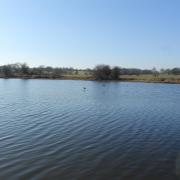We think we are a nation of animal-lovers but the evidence at this rescue centre suggests we are far from it. Mike Glover reports
Terry Bowes often despairs of the way humans treat animals. His working life is devoted to putting right the wrongs committed by people who neglect wildlife or cruelly exploit creatures for gain.
A day’s work can involve anything from exotic birds seized by Customs and Excise at Manchester Airport or pigs saved from squalor in a Trafford council house. He and his team at Wetheriggs Zoo and Animal Sanctuary are ready and willing to help.
The centre was set up seven years ago by Terry, who has spent 45 of his 64 years as a zoo-keeper. When he left South Lakes Wild Animal Park in Dalton-in-Furness he set up a consultancy to focus on his passion - teaching the young about animal care.
He became involved with an old pig farm at nearby Melmersby, which was being increasingly used as an animal rescue centre. A collapse in prices following a boom in rare breeds had sparked an rise in the numbers of unwanted porkers.
Terry helped manage the centre and then was asked by the RSPCA to look after 200 exotic birds and reptiles caught up in a cruelty case. To help raise finances he circulated local businesses, and one of them, Wetheriggs Pottery, outside Penrith, offered to house some. Eventually the rescue animals took over the site and Wetheriggs Zoo and Animal Sanctuary at Clifton Dykes, near Penrith, was born.
The 12-acre zoo now houses up to 1600 animals, with new arrivals averaging 200 a week. One full-time member of staff, four apprentices and 40 or more volunteers look after the assorted parrots, snakes, terrapins, spiders, raccoons and other abandoned victims of the changing fashion in exotic pets.
There are also other unwanted British and foreign pets and injured wildlife, so foxes, rabbits, wallabies, monkeys and even Sicilian donkeys also feature. As do chickens - dozens of them.
The traffic is not all one-way. Around 70 animals a week are found new homes at other zoos, in animal collections or with private homes, each checked out by Terry. Animals are also swapped for companionship and breeding.
That has not so far been the fate of a sole African Rock Python, a species blamed for killing two small boys in Canada, although Terry says the deaths defied all known behaviour patterns for these constrictor snakes. His python was handed in after its owner was jailed for offences unrelated to animal cruelty.
‘On the internet it is possible to buy almost anything, including endangered species,’ says Terry. ‘It is ridiculous. People buy them on a whim, without realising what they are letting themselves in for. Very often we are left to pick up the pieces.’
Particularly irritating are the fads prompted by animals featured in films and TV shows. He has a large collection of owls abandoned during the Harry Potter craze.
One challenge for the sanctuary is not knowing what will come through the door next. They take RSPCA, police, customs and other cases and can’t cater instantly for every eventuality.
It hit the local news when a family of porcupines escaped, literally digging through a brick wall while a customised cage was still being built for them.
And he fears for the rivers, lakes and canals when the Ninja Mutant Turtles franchise is re-booted next year as a film. He blames the TV series for the popularity of terrapins and snapping turtles, later dumped into the wild and now plaguing Britain’s fresh waterways.
They pose a threat to native wildlife and Terry’s team recovered 14 from the rivers Eden and Eamont in one week.
‘It’s become a massive problem. They’ve got a nasty bite on them. They’ll eat anything that moves basically,’ he said. ‘It could be fish, it could be any sort of creature, including ducks. They’ll even take the legs off ducks. One of the bigger ones, a snapper for instance, could definitely bite the finger off a toddler.’
He added that there was a limit to how many terrapins the centre could rescue and called for a ‘bit more common sense’ from the people who bought them.
The reputation of Wetheriggs is spreading. It always took animals from across the North of England and Scotland but that has now extended as far as Europe.
Education is as important part of the zoo. He has a dedicated building devoted to teaching children about animals, where they come from and how to look after them responsibly. He runs a Saturday club and about 40 primary schools organise trips to Wetheriggs. Other visitors are approaching 30,000 a year which helps to finance the centre’s work and the high turnover of animals means the species on show are constantly changing.
The other great help to financial survival is the support of the local Sainsbury’s, which donates its surplus, damaged and food past its sell-by date.
‘Without them, we’d be up the creek,’ said Terry as he loaded the van with that week’s rejects. Even faded flowers are useful food for some of his creatures.
But Terry has another challenge as his rescue centre is under threat. The property company which owns the site has put it up for sale. He hopes to raise £500,000 to buy the site outright and to put up a perimeter fence around the zoo.
‘If we owned the site, we could safeguard the zoo for future generations. That is our aim,’ he said.
Hundreds of animals and thousands of visitors who pass through Wetheriggs every year will be hoping he succeeds.
As will the organisations who rely on the zoo. Retired police inspector Eddie Bell, a former wildlife officer, said: ‘There are very few animal sanctuaries because they are expensive to run.
‘There has to be somewhere for the abandoned animals to go, because the alternative is destroying them, and that doesn’t bear thinking about.’
Friends of Wetheriggs
The zoo operates a ‘Friends of Wetheriggs’ scheme to support the charity. Find out more at www.wetheriggszoo.co.uk




